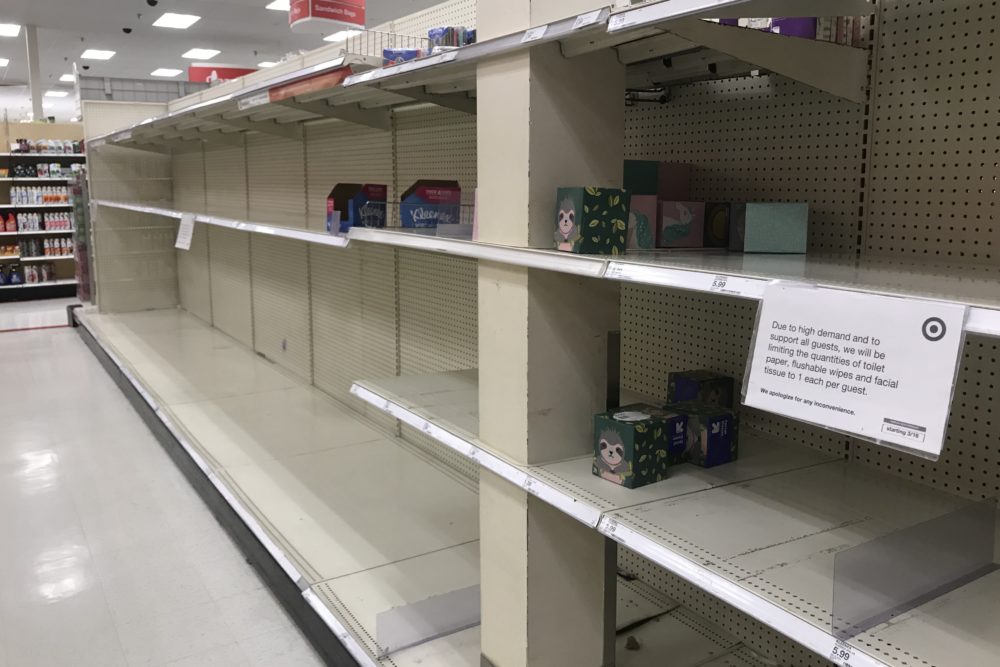
By Camelia Heins & Karen Phan
A Tennessee man made national headlines last weekend for amassing a whopping 17,700 bottles of hand sanitizer. If you’ve been to Costco, Walmart or any other store recently, you might’ve seen once-full aisles of toilet paper and water bottles now completely empty. Even alfredo sauce in the pasta aisle is gone.
Ordinary citizens are taking matters into their own hands to protect themselves from COVID-19 by hoard buying, but this helps no one. Stockpiling supplies is ridiculous and selfish.
All of these event cancelations and closures are scary, and the extreme contagiousness of COVID-19 makes you want to say goodbye to society for a few months. So, it may seem like the logical thing to do is load up on essentials to sustain yourself at home for a while.
But that’s not how it works.
Emptying shelves isn’t just unnecessary; it also does way more harm than good for the immediate community. For disadvantaged groups such as the elderly, immunocompromised children and low-income families, there’s an immense burden when their local stores run out of supplies.
Older people, who are already the most at-risk group for severe illness from COVID-19, have to visit countless stores to buy their regular groceries. Babies go without diapers and formulas. Low-income families struggle enough as it is with daily and massive closures at work.
By unnecessarily hoarding supplies, you’re taking away from others, making them more susceptible to getting sick due to a lack of resources. And every extra trip for just a gallon of milk means more unnecessary social interaction that wouldn’t take place if stores across the city didn’t run out of supplies because of hoarders.
Even the medical system is affected by panic buying.
Hoarding surgical and N95 masks endangers doctors and nurses who need them to avoid being infected. Surgical masks are also needed for patients who are sick so that they don’t infect their doctors and nurses. Many hospitals now ration masks because they have to wait for weeks for supplies. When our doctors and nurses aren’t protected, the health care system collapses and there will be no one to save patients.
To stop extreme stockpiling and allow vulnerable groups of people to safely shop, stores now set specific seniors-only hours and limit the number of high-demand items that customers can buy. Hopefully, we’ll also see fewer third-party vendors, like the Tennessee sanitizer man, who grossly price gouged the supplies they hoarded.
We have to keep in mind, however, that besides these shopping restrictions, it’s on every individual to not hoard. You don’t need 60 rolls of toilet paper this month. Or 20 boxes of dried pasta. Or a crate of surgical masks. You just don’t.
Grocery stores are considered essential businesses, so they’re still going to be open. You should stay home when possible, especially if you’re the slightest bit sick, but you can still make a quick trip to the grocery store when you absolutely need to. But there’s no need to irresponsibly stock up as if there’s an apocalypse.
The COVID-19 global pandemic is unprecedented, but it’s not a time for panic and fear. Keep up with the news. Stay home. Social distance, meaning you’re maintaining at least 6-ft distances between those around you, when in public. Follow recommendations from health organizations. And remember, hoarding supplies is not the answer.





